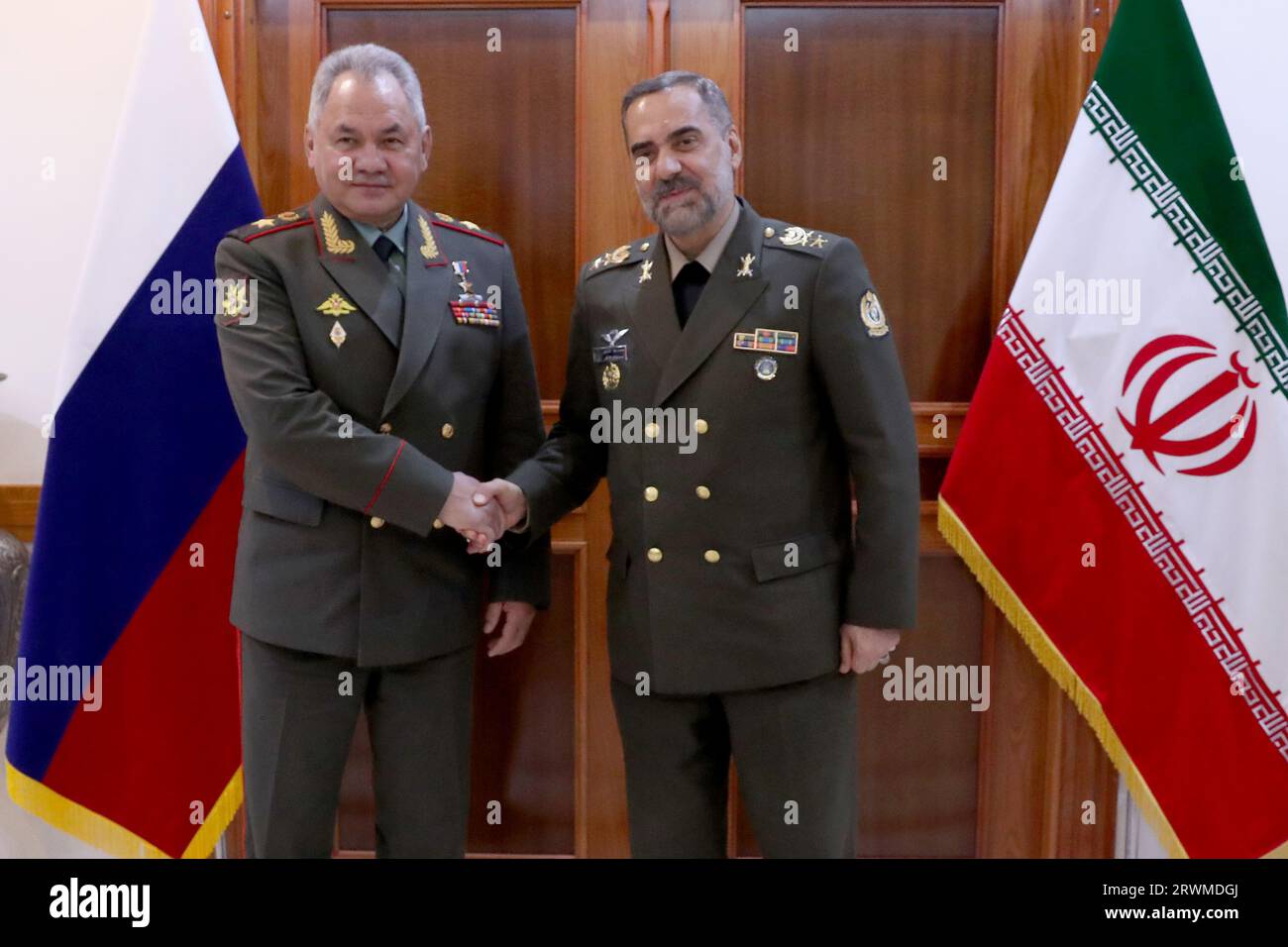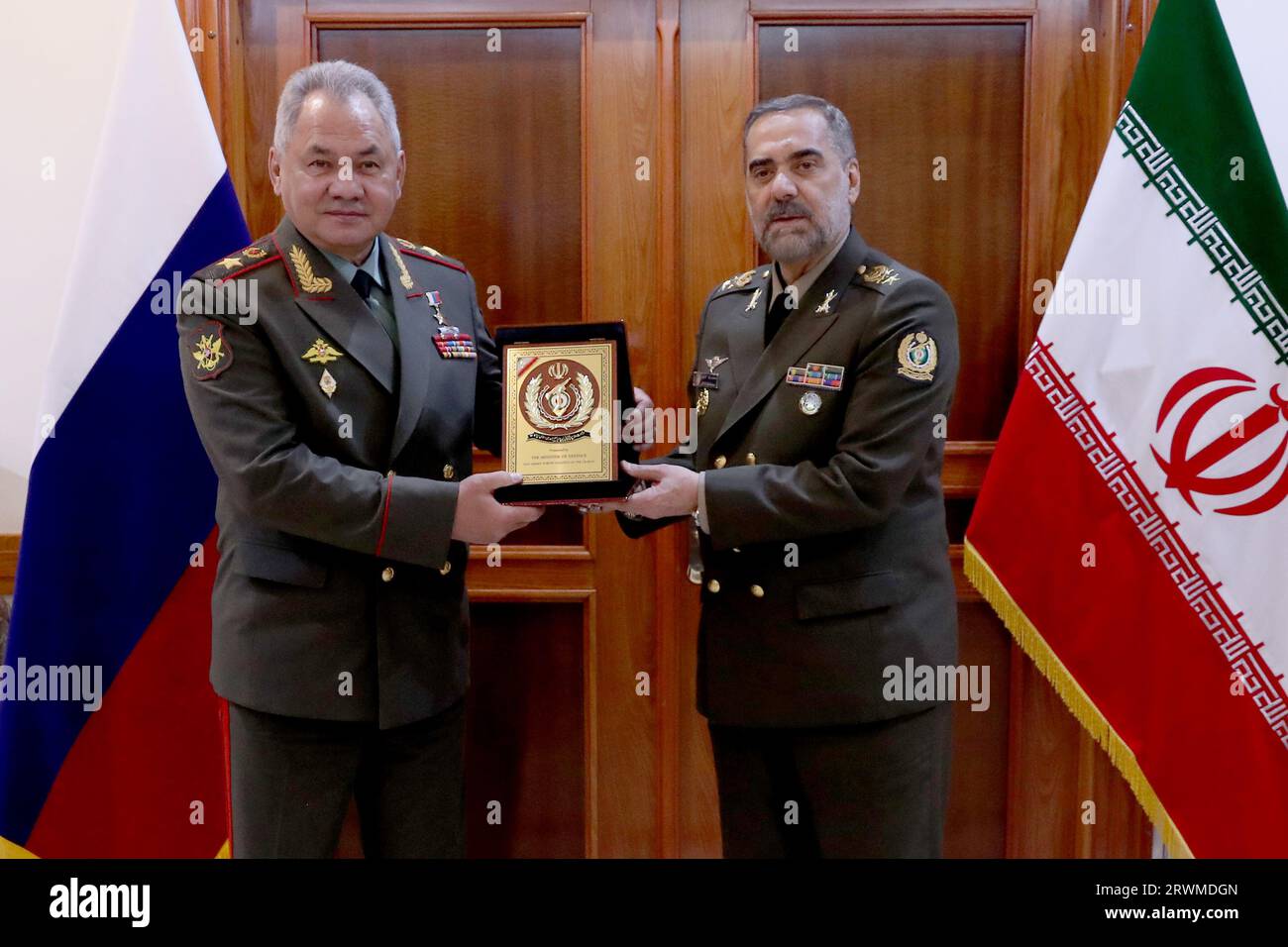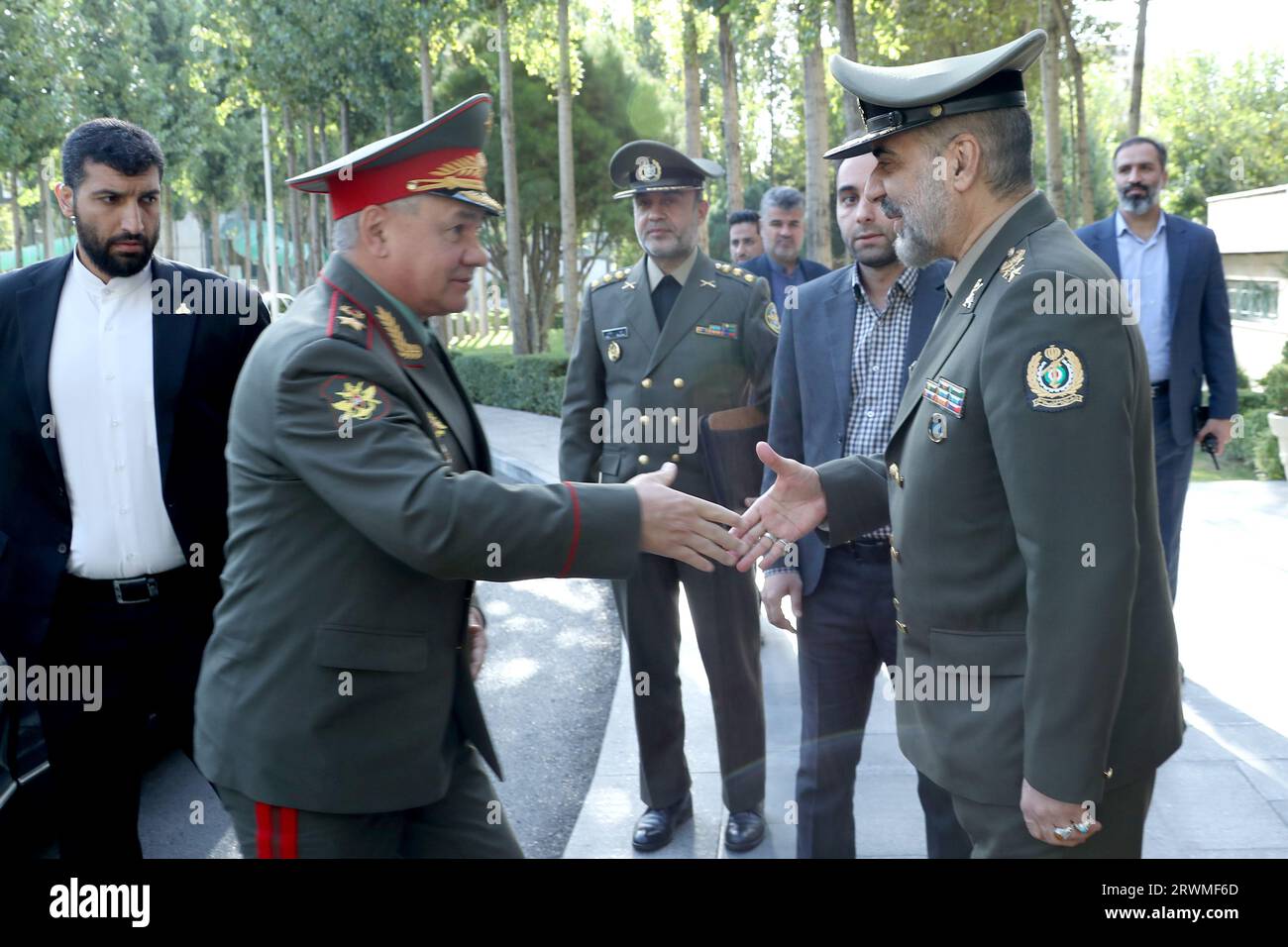Shoigu's Iran Visit: Reshaping Geopolitics Amidst Global Tensions
In a move that sent ripples across global capitals, Sergei Shoigu, the formidable Secretary of Russia's Security Council, recently made an unannounced visit to Tehran. This high-stakes diplomatic engagement, occurring amidst a backdrop of escalating regional tensions and ongoing international conflicts, underscores the deepening strategic alignment between Moscow and Tehran. The timing of Shoigu's arrival, just days after his meeting with North Korean leader Kim Jong Un, highlights Russia's concerted efforts to forge a robust anti-Western axis, challenging the established world order and raising significant concerns in Washington and beyond.
The visit of such a senior Russian official, particularly one who transitioned from the powerful role of Defense Minister to the Security Council Secretary just months prior, signals a crucial moment in the evolving relationship between these two nations. As Iran deliberates its response to the killing of a Hamas leader, the presence of Sergei Shoigu in Tehran provides a clear indication of Russia's solidarity and its strategic interest in supporting its key partner in the Middle East. This article delves into the multifaceted implications of the Shoigu Iran meetings, exploring the immediate triggers, the broader geopolitical context, and the potential ramifications for global security.
Table of Contents
- The Strategic Context of Shoigu's Iran Visit
- Sergei Shoigu: From Defense Minister to Security Council Secretary
- Biography of Sergei Shoigu
- The Immediate Triggers: Gaza and Regional Unrest
- Deepening Russia-Iran Ties: A Geopolitical Alignment
- Expanding Defense and Security Cooperation
- The North Korean Connection: A Broader Alliance?
- US Concerns and the Nuclear Dimension
- Iran's Perspective: Seeking Strategic Partners
- President Pezeshkian's Stance
- Implications for Global Security and Regional Stability
The Strategic Context of Shoigu's Iran Visit
The visit of Sergei Shoigu to Tehran on August 5, 2024, was far from a routine diplomatic exchange. It occurred at a critical juncture, with multiple geopolitical fault lines active simultaneously. Russia, deeply embroiled in its conflict with Ukraine for over two and a half years, is actively seeking to bolster its international alliances, particularly with nations that share its anti-Western sentiments or are themselves under Western sanctions. Iran, facing renewed pressure over its nuclear program and its regional activities, finds a willing partner in Russia to counter Western influence. The convergence of these strategic interests forms the bedrock of the increasingly robust Shoigu Iran axis.
- Jimmy Carter And Iran
- What Is Capital City Of Iran
- Iran Response To Trump
- Iran Air Defense
- Iran And The Nuclear Deal
This visit, characterized by Russian news agencies as an effort to deepen Moscow's defense ties with Tehran, is a clear signal of a burgeoning partnership that extends beyond mere diplomatic courtesy. It reflects a calculated move by both nations to strengthen their positions on the global stage, leveraging mutual needs and shared adversaries. The discussions between Shoigu, Iranian President Masoud Pezeshkian, and top security officials were not just about bilateral relations but about coordinating responses to a rapidly changing global landscape, particularly in the Middle East.
Sergei Shoigu: From Defense Minister to Security Council Secretary
To understand the significance of the Shoigu Iran meeting, it's crucial to appreciate the stature of Sergei Shoigu within the Russian power structure. Before his appointment as the Secretary of Russia's Security Council in May 2024, Shoigu served as Russia’s Defense Minister for over a decade, making him one of the longest-serving and most influential figures in Vladimir Putin's inner circle. His tenure as Defense Minister saw significant modernization efforts within the Russian military and was marked by Russia's military interventions in Syria and Ukraine. His move to the Security Council, while a lateral shift, signifies his continued importance as a senior ally of President Vladimir Putin, particularly in matters of national security strategy and foreign policy coordination.
As the Security Council Secretary, Shoigu plays a pivotal role in shaping Russia's strategic direction, advising the president on key security decisions, and coordinating the activities of various security agencies. His visit to Tehran, therefore, carries immense weight, indicating that the discussions were at the highest level of strategic planning, not merely operational defense matters. This elevation in his role underscores the strategic nature of the Shoigu Iran talks, moving beyond just military hardware to broader geopolitical alignment and coordination.
- Pasargadae Iran
- War Declared On Iran
- Saudi Arabia Conflict With Iran
- Iran Wikipedija
- Israels Attack On Iran
Biography of Sergei Shoigu
Sergei Kuzhugetovich Shoigu is a prominent figure in Russian politics and military affairs. His career trajectory showcases a deep involvement in various aspects of Russian governance and security.
| Attribute | Details |
|---|---|
| Full Name | Sergei Kuzhugetovich Shoigu |
| Date of Birth | May 21, 1955 |
| Place of Birth | Chadan, Tuvan Autonomous Oblast, Russian SFSR, Soviet Union |
| Nationality | Russian |
| Education | Krasnoyarsk Polytechnic Institute (Civil Engineering) |
| Political Party | United Russia |
| Previous Roles |
|
| Current Role | Secretary of the Security Council of Russia (since May 2024) |
| Military Rank | General of the Army |
The Immediate Triggers: Gaza and Regional Unrest
One of the most pressing issues discussed during the Shoigu Iran meetings was the volatile situation in the Middle East, particularly the ongoing conflict in Gaza. The "Data Kalimat" explicitly states that Shoigu met Iranian officials "as the Islamic Republic weighs its response to the killing of a Hamas leader." This indicates that the discussions were highly topical and directly related to immediate regional security concerns. Iranian President Masoud Pezeshkian, in his meeting with Shoigu, reportedly "hit out at what he called the 'criminal acts' committed by Israel 'against the oppressed and defenseless people of Gaza'."
Russia's condemnation of actions against Gaza, as stated on August 2, further solidifies its alignment with Iran on this critical issue. This shared stance on the Israeli-Palestinian conflict provides a significant point of convergence for the two nations, allowing them to present a united front against perceived Western and Israeli aggression. For Iran, Russia's support offers crucial diplomatic backing and potentially material assistance in navigating the complex regional landscape. For Russia, it reinforces its image as a global power capable of influencing events in the Middle East, challenging the traditional dominance of the United States.
Deepening Russia-Iran Ties: A Geopolitical Alignment
The Shoigu Iran talks are a testament to the deepening strategic partnership between Moscow and Tehran, a relationship that has gained considerable momentum since Russia's full-scale invasion of Ukraine. Both nations face extensive Western sanctions and share a common goal of diminishing US influence in global affairs. This convergence of interests has led to increased cooperation across various sectors, including military, economic, and political spheres. Iranian state media reported that President Pezeshkian told Shoigu that "Tehran was determined to expand relations with its strategic partner Russia." This statement underscores Iran's commitment to strengthening this alliance, viewing Russia as a vital counterweight to Western pressures.
The relationship is symbiotic: Russia needs Iranian drones and potentially other military assistance for its war efforts in Ukraine, while Iran seeks advanced Russian military technology, diplomatic support, and economic opportunities to circumvent sanctions. The visit by such a high-ranking security official like Shoigu suggests that the discussions extended beyond immediate tactical needs to a more comprehensive strategic partnership, encompassing long-term security cooperation and coordination on regional and international issues. This evolving dynamic is a significant factor in reshaping the geopolitical landscape, particularly in the Middle East and Central Asia.
Expanding Defense and Security Cooperation
While the precise details of the defense discussions during the Shoigu Iran meetings remain undisclosed, Russian news agencies explicitly stated that Shoigu arrived "for meetings to deepen Moscow's defense ties with Tehran." This likely includes discussions on arms sales, military training, intelligence sharing, and potentially joint military exercises. Iran has been a key supplier of Shahed drones to Russia, which have been extensively used in Ukraine. In return, Iran is reportedly interested in acquiring advanced Russian fighter jets, air defense systems, and other sophisticated weaponry that could significantly enhance its military capabilities.
The deepening of defense ties is not just about transactions; it's about building a more integrated security framework. This could involve greater coordination in regional conflicts, information exchange on counter-terrorism efforts, and joint strategies to counter perceived threats from the West. The presence of Russia's top security official, rather than just a defense minister, suggests that the scope of cooperation is broad, covering national security doctrines and strategic planning, not just military hardware. This level of engagement is a clear signal of a long-term commitment to a robust defense partnership.
The North Korean Connection: A Broader Alliance?
Perhaps one of the most intriguing aspects of the Shoigu Iran visit was its timing: it occurred "less than a week after he met with North Korea's Kim Jong Un amid U.S. concerns that Russia is expanding its nuclear ties with" Pyongyang. This sequential diplomacy suggests a deliberate strategy by Moscow to forge a broader alliance of nations that are either under Western sanctions or share a common adversarial stance towards the US and its allies. The fact that Shoigu, Russia's top security official, traveled from Pyongyang directly to Tehran underscores the interconnectedness of these relationships in Russia's foreign policy calculus.
The potential for a trilateral axis involving Russia, Iran, and North Korea raises significant concerns for global security. All three nations possess nuclear capabilities or aspirations, and their increased cooperation could lead to greater proliferation risks and a more destabilized international environment. For Russia, these partnerships offer alternative supply chains for military equipment, diplomatic leverage against Western pressure, and a means to demonstrate its ability to circumvent international sanctions. This emerging alignment represents a formidable challenge to the existing global security architecture, pushing the boundaries of what was previously considered acceptable international conduct.
US Concerns and the Nuclear Dimension
The United States has long expressed concerns about the deepening ties between Russia and Iran, particularly regarding military cooperation and potential nuclear implications. The "Data Kalimat" explicitly mentions "U.S. concerns that Russia is expanding its nuclear ties with" North Korea, and by extension, this concern extends to Iran. While direct nuclear cooperation between Russia and Iran is a highly sensitive and closely monitored issue, the broader security alignment could indirectly impact nuclear non-proliferation efforts. Any transfer of advanced conventional weaponry or technology could free up Iranian resources for its nuclear program, or simply enhance its overall strategic deterrence.
The Shoigu Iran meetings, therefore, are being watched closely by Western intelligence agencies. The fear is that Russia, in its desperation for military supplies for Ukraine, might be willing to provide Iran with technology or expertise that could accelerate its nuclear program or enhance its missile capabilities. This would have profound implications for regional stability in the Middle East and could trigger a new arms race. The US and its allies are likely to explore further sanctions and diplomatic measures to counter this growing axis, but the effectiveness of such measures remains a significant challenge given the determination of all parties involved.
Iran's Perspective: Seeking Strategic Partners
From Tehran's vantage point, the visit of Sergei Shoigu represents a significant diplomatic victory and a reinforcement of its strategic position. Isolated by Western sanctions and facing constant pressure over its nuclear program and regional proxies, Iran actively seeks reliable partners to break its international isolation and enhance its security. Russia, a permanent member of the UN Security Council and a major military power, fits this bill perfectly. The Shoigu Iran discussions provide Iran with an opportunity to solidify its alliances, gain access to advanced military technology, and coordinate strategies against common adversaries.
The timing of the visit, amidst Iran's deliberations on responding to the killing of a Hamas leader, further highlights Russia's role as a supportive ally. This support extends beyond military aid to diplomatic backing in international forums, providing Iran with a crucial shield against further condemnation or punitive actions. For Iran, cultivating this strategic partnership with Russia is essential for its long-term national security and its ambition to project influence in the Middle East and beyond.
President Pezeshkian's Stance
Iranian President Masoud Pezeshkian's statements during his meeting with Sergei Shoigu were clear and unequivocal. He "told a senior ally of Kremlin leader Vladimir Putin on Monday that Tehran was determined to expand relations with its strategic partner Russia." This strong declaration, reported by Iranian state media, leaves no doubt about Iran's commitment to deepening this alliance. Pezeshkian's condemnation of Israel's "criminal acts" against Gaza also aligns perfectly with Russia's recent public statements, demonstrating a coordinated diplomatic front on regional issues.
The public display of solidarity, including the handshake captured in photographs, serves to project an image of strength and unity to both domestic and international audiences. For President Pezeshkian, who is relatively new to the presidency, hosting such a high-profile Russian official and reaffirming strategic ties helps solidify his foreign policy credentials and demonstrates Iran's ability to navigate complex international relations despite Western pressure. The Shoigu Iran meeting thus reinforces the narrative of a robust and growing partnership.
Implications for Global Security and Regional Stability
The Shoigu Iran meetings carry profound implications for global security and regional stability. The strengthening of this axis, potentially alongside North Korea, signals a significant shift in the balance of power and a direct challenge to the US-led international order. For the Middle East, it could mean increased Russian involvement in regional conflicts, a greater flow of advanced weaponry to Iranian proxies, and heightened tensions with Israel and its allies. The shared condemnation of Israel's actions in Gaza by both Russia and Iran suggests a coordinated diplomatic and potentially operational approach to the conflict, which could further complicate efforts towards de-escalation.
Globally, this alliance presents a united front against Western sanctions and diplomatic pressure. It enables Russia to circumvent restrictions on its war efforts in Ukraine and allows Iran to bolster its defense capabilities and project power. The potential for technology transfer, particularly in sensitive areas like missile technology or even nuclear-related knowledge, raises the specter of increased proliferation risks. The international community will need to carefully monitor these developments and consider coordinated responses to mitigate the risks posed by this evolving strategic partnership. The visit of Sergei Shoigu to Tehran is not merely a bilateral event; it is a critical piece in the larger, complex puzzle of contemporary geopolitics.
Conclusion
The unannounced visit of Sergei Shoigu, Russia's Security Council Secretary, to Iran marks a pivotal moment in the deepening strategic alignment between Moscow and Tehran. Occurring amidst regional turmoil and global geopolitical shifts, the Shoigu Iran meetings underscored a mutual determination to expand relations, particularly in defense and security. From coordinating responses to the Gaza conflict to potentially forging a broader anti-Western alliance with North Korea, the discussions signify a concerted effort by Russia and Iran to challenge the existing international order and bolster their respective positions against Western pressure.
This evolving partnership, driven by shared strategic interests and common adversaries, carries significant implications for global security, regional stability, and nuclear non-proliferation efforts. As the world watches these developments unfold, understanding the nuances of the Shoigu Iran dynamic becomes increasingly crucial. What are your thoughts on this growing alliance? Do you believe it will significantly alter the balance of power in the Middle East or globally? Share your perspectives in the comments below and consider sharing this article to foster further discussion on this critical geopolitical issue.

Shoigu iran hi-res stock photography and images - Alamy

Shoigu iran hi-res stock photography and images - Alamy

Shoigu iran hi-res stock photography and images - Alamy